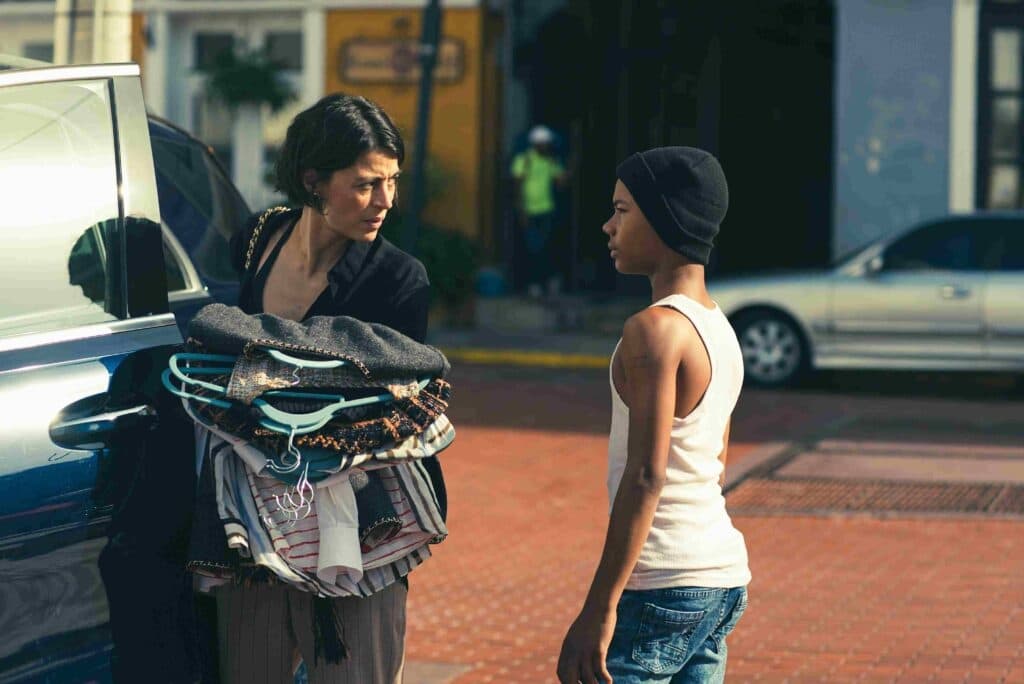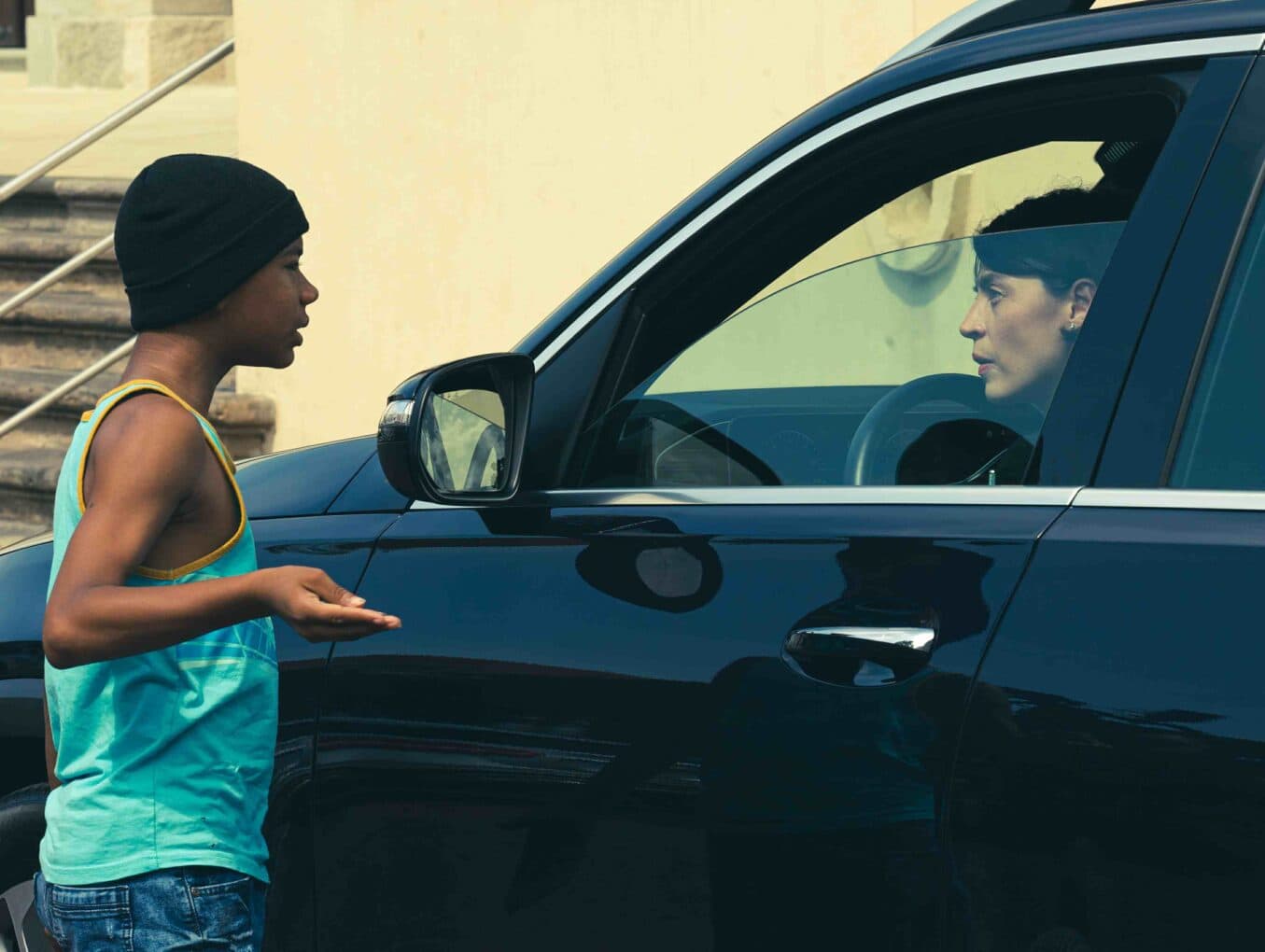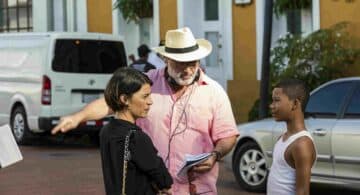Abner Benaim
Our special Guest is the most important Panamanian filmmaker in the country, with such a great passion for the seventh art that after studying International Relations and Economics in the United States and working for several years in commerce, decides to study Film Direction and Cinematography in Israel. In his filmography he has to his credit one of the Panamanian films that broke Box Office in Panama: “Chance”, as well as two documentaries of great importance for our country and that had a great international resonance: “Invasion” and “My Name is Not Ruben Blades”.
His multiple works in productions of international scope in countries such as the United States and Israel have been key to developing his personal way of telling stories, and which today translates into his latest production “Plaza Catedral.” In this interview Abner Benaim talks to us on his perspective of Panama, and issues that afflict our tourism industry.
What do you feel your films have shown abroad?
“Usually the people who watch my movies abroad tell me that it made them want to visit Panama, that they got know the country a little more and liked what they saw especially from the people of Panama, which breaks a lot of stereotypes and preconceptions they had about our country. People want to see a little more in depth places in Panama and learn more about our stories.

Do you feel that our culture of mixing with other nationalities can help us take the best from abroad and enhance the positive of what is ours?
I have always thought that in the mix there is a lot of strength, there is beauty, I mean racial, ethnic, cultural diversity, whatever you want. I believe that the more we are open to other cultures, the more we learn, the more we project ourselves and that there is nothing that can take away our identity, origin and fight against xenophobia and the type of thinking that seeks to protect Panama from other cultures. Because if we think about it, the only people who are really from here are the indigenous people, the rest of us arrived as immigrants at some point either five hundred years ago, a hundred or twenty years ago. We are a country of immigrants and that is the beauty of the country and I do believe that enhancing that beauty is something that everyone here has to do as Panamanians.
The collective memory has reduced the invasion of Panama to just one event where it is only remembered every December 20. What can be done with this subject matter in our country to reinforce our history and tourist experience.
Regarding the invasion, I think they are making efforts, it has been included in the collective memory in a broader way. Some time ago I did not like that only few remembered this part of history as theirs and others saw it as a subject matter to which they not felt related to. Today the invasion is seen as an event that happened to all of Panama and that must be commemorated. The way to reinforce this history is at schools and homes, and of course, through literature, cinema, theater, all the arts that help keep our memory. At the institutional level, everything that has to do with schools and commemorative events and I think that something very important that has not yet happened and that it would be essential to maintain that memory is to be able to have an exact number of how many deaths there were , identify their names and close that chapter, in order to erase doubts and put names to anonymous people that were involved in what happened.

In other countries, even negative events that happened in their history is taken as an advantage to raise awareness in society and to created as a tourist attraction. Why Panama has not achieved neither of the two and what do you feel can be done?
I think that things have been done in Panama, what happens is that there is a tendency to hide anything negative and not to assimilate it or name it as part of our history. I always had the idea, for example, that Noriega’s house could have been perfectly converted into a museum and that many other things such as the “bunkers” at United States former military bases. Much can still be done for tourism, we still have ideas from pirates to dictatorship.
I do not think that one should sell the negative things as if it were one classic attraction in a Disneyland-style tourism. These issues must be treated with respect and dignity through museums and make it part of our identity. However, I believe that we also have enough positive things from nature to our history of relative peace, there are many things that can be exalted in this country and that is done, we simply need to do more.
Plaza Catedral is the first Panamanian film to open the Panama Film Festival. What message do you want Plaza Catedral to leave in the collective memory?
Well, is an honor and pride that Plaza Catedral is the first film to open the Panama Film Festival. I do not want to say a single message or speak in behalf of the film, I believe that each person when watches the film will have its own personal message. What we want is for the film to go as far as possible and we have in particular a message that comes perhaps from inside and outside that is in rejection of youth violence, based on what happened to our actor Fernando Javier de Casta who was murdered . That has become part of the message of the film’s campaign to take advantage of the media coverage to say that we have to open our eyes, that we are part of a single society and that we cannot blame young people for the conditions in which they are born and grow up; and the result of having a youth surrounded by so much violence.







